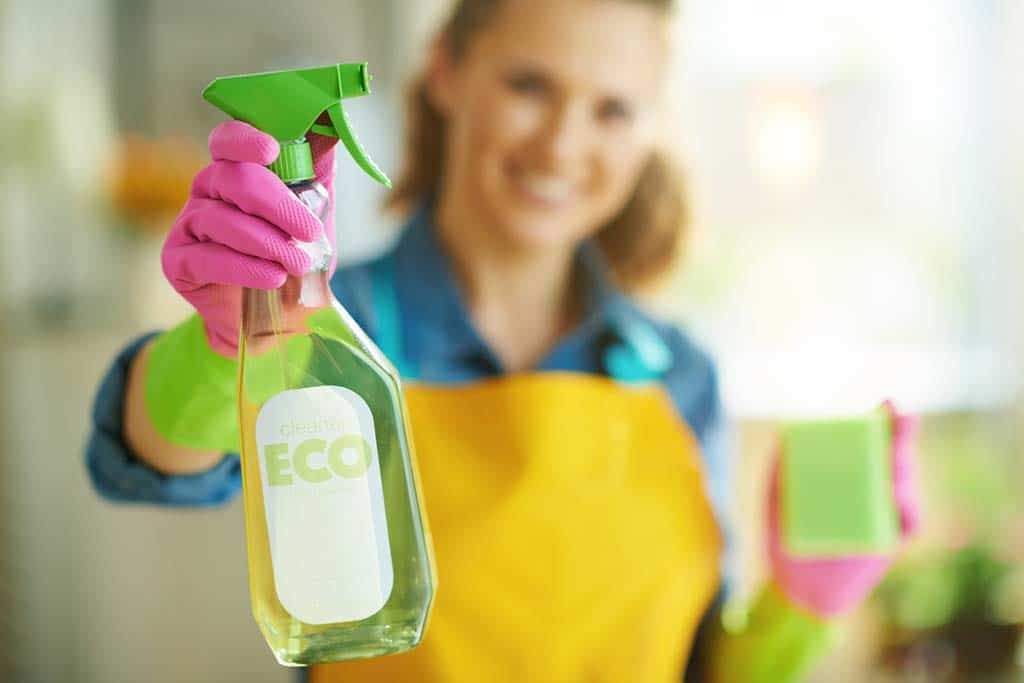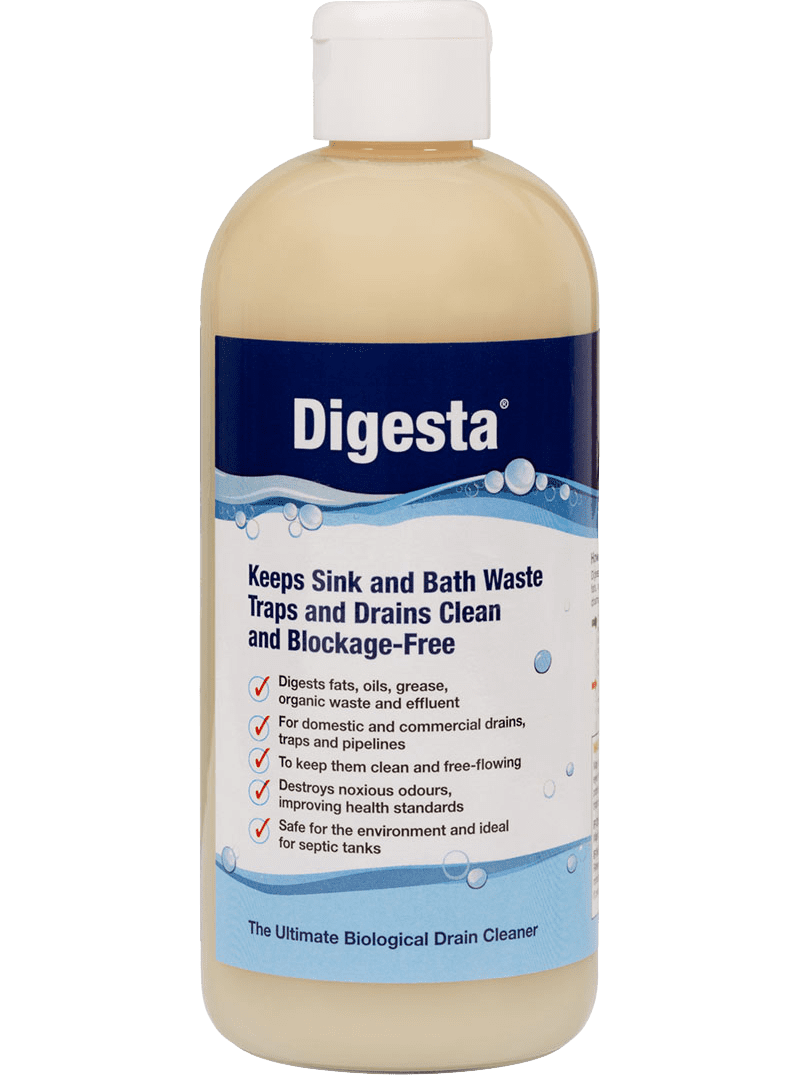In this article, you will discover helpful tips on choosing the right drain cleaner that is safe for septic tanks. Septic systems require special care and consideration when it comes to cleaning products, as certain chemicals can disrupt the delicate balance of bacteria that keep the system functioning properly. By understanding the importance of septic-friendly cleaning solutions and knowing what to look for, you can ensure the longevity and effectiveness of your septic system while keeping your drains clog-free.
Understanding Septic Tanks
How septic tanks work
Septic tanks are an essential component of many residential and commercial properties that are not connected to a public sewer system. They function as on-site wastewater treatment systems, ensuring that harmful substances are properly disposed of. A septic tank is an underground container that collects and treats wastewater from toilets, sinks, showers, and other plumbing fixtures. As wastewater enters the septic tank, solids settle to the bottom, forming a layer of sludge. Lighter materials like grease and oil float to the top, creating a layer of scum. The remaining liquid, or effluent, flows out of the tank into the drain field, where it is further treated and eventually returned to the environment.
Why it is important to use septic-friendly cleaning solutions
Using septic-friendly cleaning solutions is crucial to maintaining the health and functionality of your septic tank. Harsh chemicals found in many conventional cleaning products can disrupt the delicate balance within the tank, killing off the beneficial bacteria that break down waste. When these bacteria are depleted, the efficiency of the system decreases, leading to potential clogs, backups, and overall system failure. Additionally, chemicals that harm septic systems can also have detrimental effects on the environment and water sources when they leach out of the tank and enter the groundwater or nearby bodies of water. Therefore, it is essential to choose cleaning solutions that are specifically formulated to be safe for septic systems.
Potential Risks of Using Harsh Chemicals
Chemicals that can harm septic systems
Many common household cleaning products contain chemicals that can be harmful to septic systems. Chlorine bleach, for example, is a powerful disinfectant that can kill off the beneficial bacteria in a septic tank. Antibacterial soaps and cleaners also pose a risk, as they are designed to kill bacteria, including the beneficial ones that are essential for proper septic tank function. Other potentially harmful chemicals to avoid include ammonia, phosphates, and various solvents, which can disrupt the biological processes in the tank and hinder the breakdown of waste materials.
Negative effects on the environment and water sources
When chemicals harm septic systems, they not only affect the functionality of the tank but also pose significant environmental risks. Septic tanks are designed to treat wastewater and remove harmful substances before they are released into the environment. However, if improper cleaning products are used, these harmful chemicals can leach out of the tank and contaminate the groundwater and nearby bodies of water. This contamination can negatively impact aquatic life, disrupt ecosystems, and pose health risks to humans and animals who come into contact with the contaminated water. Therefore, it is crucial to choose cleaning solutions that are both safe for your septic system and the environment.
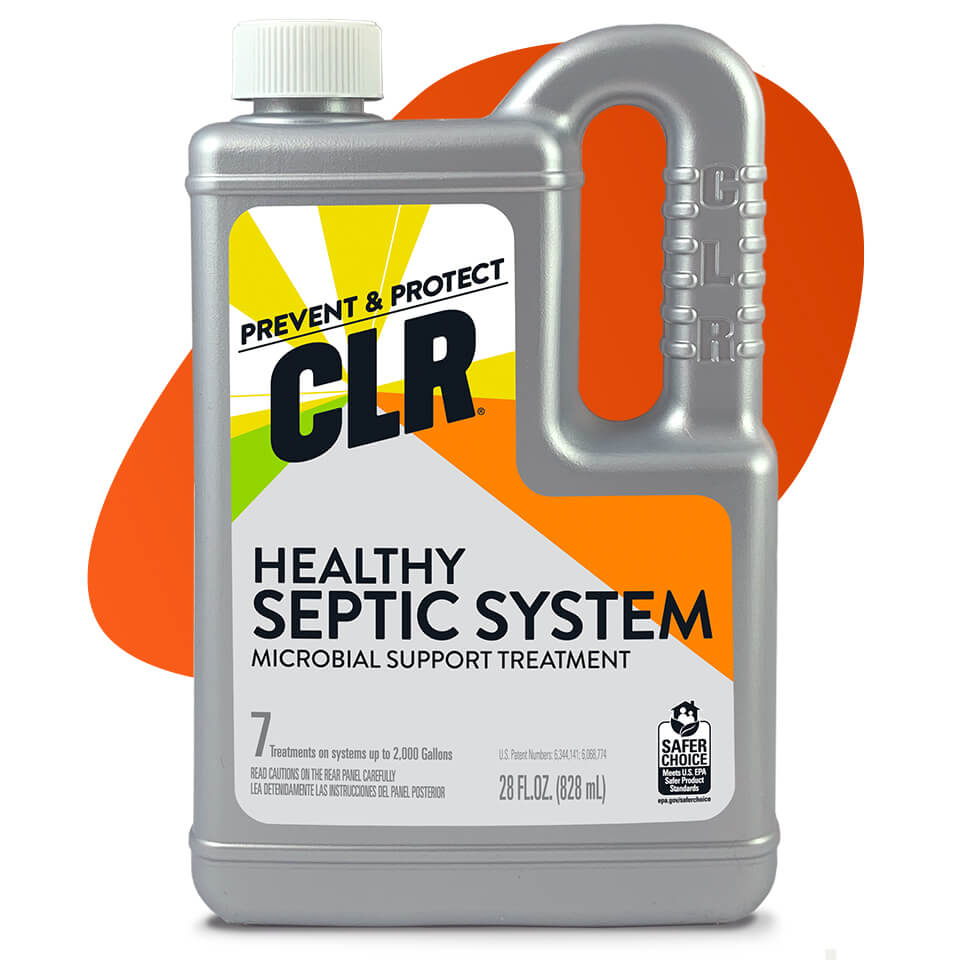
Identifying Septic-Friendly Cleaning Solutions
Reading labels and product descriptions
When shopping for cleaning products, it is essential to read the labels and product descriptions carefully. Look for cleaning solutions specifically labeled as “septic-safe,” “septic-friendly,” or “safe for septic tanks.” These products are formulated to be free from harmful chemicals that can disrupt the balance within your septic system. Additionally, some labels may also include information about the specific ingredients used in the product and highlight any environmentally-friendly certifications or endorsements.
Avoiding ingredients harmful to septic systems
To ensure you are selecting septic-friendly cleaning solutions, it is crucial to avoid certain ingredients that can harm septic systems. Ingredients such as chlorine bleach, ammonia, phosphates, and synthetic fragrances should be avoided. Instead, look for products that use natural and biodegradable ingredients. These products are typically safer for your septic system and the environment. Ingredients like plant-based surfactants, enzymes, and essential oils are often found in septic-safe cleaning solutions and can effectively clean without compromising the system’s efficiency.
Considering natural and biodegradable options
Another excellent option for septic-friendly cleaning solutions is to opt for natural and biodegradable options. Many eco-friendly cleaning brands offer products that are specifically formulated to be safe for septic systems. These products are typically made from renewable resources, free from harsh chemicals, and packaged in eco-friendly materials. Choosing natural and biodegradable options not only helps to protect your septic system but also promotes sustainable and environmentally-conscious practices in your home.
pH Levels and Septic Tank Safety
Understanding the pH scale
pH is a measure of the acidity or alkalinity of a substance, ranging from 0 to 14 on the pH scale. A pH of 7 is considered neutral, values below 7 indicate acidity, and values above 7 indicate alkalinity. For a septic tank to function properly, it is crucial to maintain a safe pH level within the system. The optimal pH range for septic tanks is typically between 6.5 and 7.6. Outside of this range, the balance of bacteria and other microorganisms in the tank may be disrupted, affecting the breakdown of waste and overall system efficiency.
The importance of maintaining a safe pH level in septic tanks
Maintaining a safe pH level in your septic tank is essential for several reasons. Firstly, a balanced pH ensures the activity of the beneficial bacteria that break down organic matter, keeping your tank functioning effectively. If the pH becomes too acidic or alkaline, it can harm these bacteria, leading to an imbalance in the tank and potentially causing system failure. Secondly, a safe pH level helps prevent the corrosion of metal components within the tank, such as pipes and fittings. Corrosion can weaken the structure of the tank and result in leaks, which can be costly to repair. By regularly monitoring and adjusting the pH level, you can help prolong the lifespan of your septic tank and avoid costly repairs.
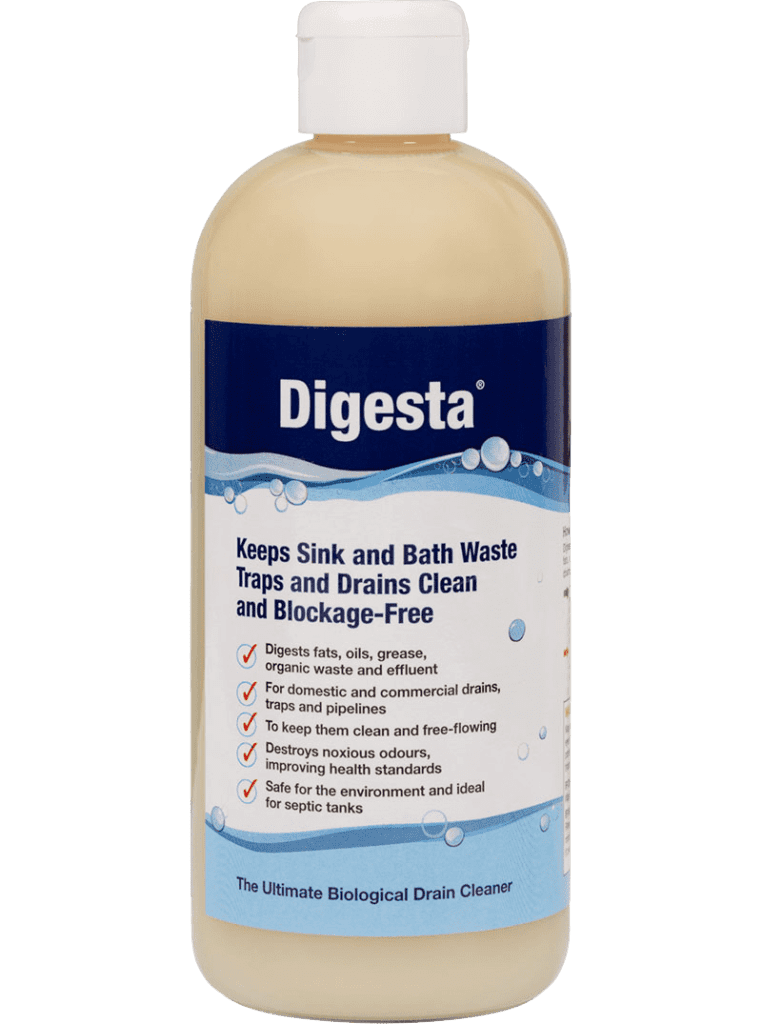
Recommended Drain Cleaners for Septic Tanks
There are several septic-friendly drain cleaners available that can effectively remove clogs and maintain the health of your septic system. Here are six recommended options:
1. Enzyme-based drain cleaners
Enzyme-based drain cleaners are a popular choice for maintaining septic-friendly cleaning practices. These cleaners contain beneficial enzymes that break down organic matter, such as grease, hair, and soap scum, without harming the beneficial bacteria in the septic tank. Enzyme-based cleaners are typically safe for all types of pipes and can help prevent clogs and keep your drains flowing smoothly.
2. Baking soda and vinegar mixture
A mixture of baking soda and vinegar can be an effective and natural alternative for cleaning and maintaining your drains. Baking soda acts as a gentle abrasive, helping to remove buildup and odors, while vinegar provides a mild disinfecting and deodorizing effect. When combined, these ingredients create a foaming reaction that can help dislodge clogs and keep your drains clean. This homemade drain cleaner is safe for septic systems and can be used regularly as a preventative maintenance measure.
3. Bio-Clean drain septic bacteria
Bio-Clean drain septic bacteria is a specialized product designed to enhance the performance of septic systems. It contains a blend of natural bacteria and enzymes that effectively break down organic waste, including proteins, fats, and carbohydrates. Using Bio-Clean on a regular basis can help maintain a healthy septic tank, prevent backups, and eliminate odors. This septic-friendly drain cleaner is easy to use and safe for all plumbing and septic system types.
4. Earthworm Family-Safe drain cleaner
The Earthworm Family-Safe drain cleaner is another excellent option for safely maintaining your septic system. This product is made from natural and biodegradable ingredients, such as enzymes and bacteria, that help break down organic waste. It is free from harsh chemicals and safe for all types of plumbing and septic systems. The Earthworm Family-Safe drain cleaner effectively clears clogs, eliminates odors, and keeps your drains flowing smoothly.
5. Citric acid drain cleaners
Citric acid drain cleaners are environmentally-friendly alternatives that can effectively remove clogs and maintain the health of your septic system. Citric acid acts as a natural chelating agent, breaking down mineral deposits and organic matter. It is safe for septic tanks, as it does not harm the beneficial bacteria. Citric acid drain cleaners are typically available in powder or liquid form and can be used regularly to prevent clogs and keep your drains clean.
6. DIY natural drain cleaners
If you prefer to make your own septic-friendly drain cleaner, there are several simple recipes you can try. One popular option is a combination of salt, baking soda, and hot water. This mixture can help remove buildup and freshen your drains. Another recipe involves using a mixture of lemon juice and salt, creating a natural abrasive cleaner that can be effective against grease and odor. These DIY drain cleaners are cost-effective and safe for septic systems, providing you with a natural and eco-friendly solution.
Dos and Don’ts of Septic-Friendly Cleaning
Do: Regular maintenance and pumping
Regular maintenance and pumping are essential for the proper functioning of your septic system. It is recommended to have your tank inspected at least every three to five years, depending on usage and the size of your household. Regular pumping removes excess sludge and scum from the tank, preventing clogs and maintaining the system’s efficiency. By following a routine maintenance schedule, you can prevent costly repairs and ensure the longevity of your septic tank.
Do: Use septic-safe laundry detergent and dishwasher soap
Choosing septic-safe laundry detergent and dishwasher soap is crucial for maintaining a healthy septic system. Regular household cleaning products often contain harmful chemicals, such as phosphates and chlorine bleach, which can disrupt the balance in your septic tank. Septic-safe laundry detergent and dishwasher soap are formulated to be free from these chemicals, ensuring that your wastewater does not harm the beneficial bacteria within the tank. Look for products that are specifically labeled as septic-safe or septic-friendly.
Do: Properly dispose of chemicals and medications
Properly disposing of chemicals and medications is essential to prevent harm to your septic system. Flushing or pouring chemicals down the drain can have detrimental effects on the bacteria in your septic tank and may damage the environment when they enter the groundwater or nearby water sources. Instead, dispose of chemicals and medications at designated collection sites or follow local disposal guidelines. By taking this step, you can protect your septic system and prevent pollution of the environment.
Don’t: Use excessive amounts of cleaning products
Using excessive amounts of cleaning products can be harmful to your septic system. More is not always better when it comes to cleaning. Overuse of cleaning products can overwhelm the beneficial bacteria within the septic tank and disrupt the system’s balance. It is important to follow the recommended usage instructions provided on the cleaning product labels. Using the appropriate amount of cleaning product not only ensures effective cleaning but also helps maintain the health and functionality of your septic system.
Don’t: Dispose of non-biodegradable items into the septic system
To maintain the proper functioning of your septic system, it is crucial to avoid disposing of non-biodegradable items into the tank. Non-biodegradable items, such as sanitary products, wipes, diapers, and paper towels, do not break down like organic matter. These items can accumulate in the tank, clog the system, and potentially cause backups or damage to your septic system. To prevent these issues, it is important to dispose of non-biodegradable items in the appropriate waste bin or trash receptacle.
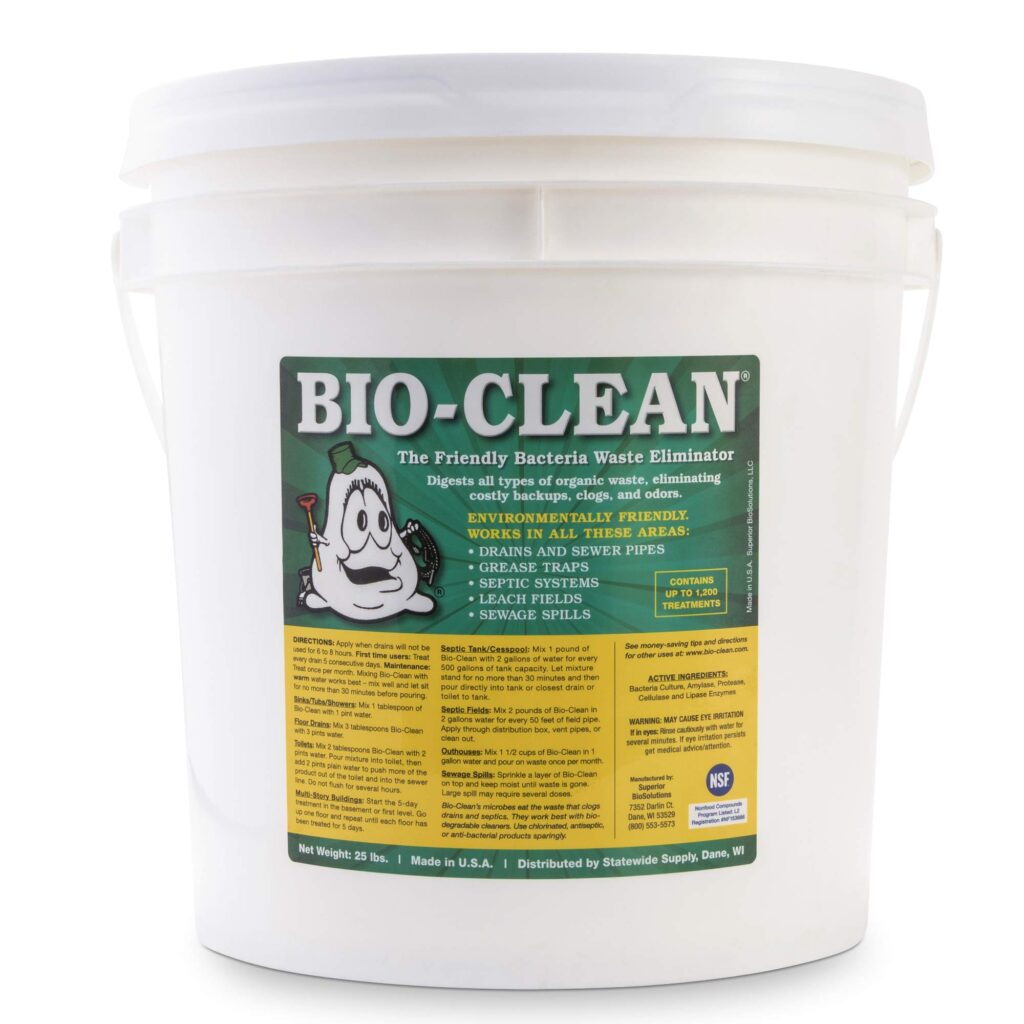
Tips for Effective Septic Tank Maintenance
Regular inspection and pumping schedule
Regularly inspecting and pumping your septic tank is key to proper maintenance. As mentioned earlier, it is recommended to have your tank inspected every three to five years and pumped as needed. This interval may vary depending on your household size, water usage, and the type of septic system you have. Professionals can assess the condition of your tank, identify any issues, and recommend appropriate actions. By following a regular inspection and pumping schedule, you can avoid costly repairs and maintain the efficiency of your septic system.
Conserving water to reduce strain on the septic system
Conserving water is an effective way to reduce strain on your septic system. Excessive water usage can overload the system, preventing it from effectively treating the wastewater. To conserve water, consider installing low-flow fixtures, repairing leaks promptly, and being mindful of water usage habits. Simple actions like taking shorter showers, running full loads in the dishwasher and washing machine, and fixing leaky faucets can significantly reduce water consumption and help your septic system operate more efficiently.
Proper waste disposal practices
In addition to being mindful of what you flush down the drain, proper waste disposal practices can help maintain the health of your septic system. Avoid disposing of cooking grease, oils, and food scraps directly into the drain, as they can cause clogs and strain the system. Use a strainer or screen over your kitchen sink drain to catch larger food particles. Additionally, avoid pouring harsh chemicals, paint, solvents, and other non-biodegradable substances down the drain, as they can damage your septic system.
Avoiding flushing unwanted substances down the drain
To prevent clogs and damage to your septic system, it is important to avoid flushing unwanted substances down the drain. This includes items such as sanitary products, wipes, diapers, dental floss, and cigarette butts. These items do not break down easily and can accumulate in the septic tank, obstructing the flow of wastewater and causing backups. Remember to use waste bins and trash receptacles for proper disposal of non-biodegradable items and only flush human waste and toilet paper down the toilet.
Professional Help and Advice
Consulting a septic system professional
If you have questions or concerns about your septic system, it is always best to consult a septic system professional. These experts have the knowledge and experience to assess the condition of your system, provide recommendations for maintenance and repairs, and answer any specific questions you may have. They can also help you determine the best septic-friendly cleaning products and provide guidance on proper septic system maintenance practices.
Seeking recommendations for septic-friendly cleaning products
When in doubt about which cleaning products to use for your septic system, seeking recommendations from septic system professionals or other homeowners with septic tanks can be helpful. These individuals have firsthand experience with maintaining septic systems and can provide valuable insights on the effectiveness and safety of various cleaning products. Online forums and community groups dedicated to septic system maintenance can be excellent resources for obtaining recommendations and tips from others who have faced similar challenges.
In conclusion, understanding septic tanks and using septic-friendly cleaning solutions are crucial for maintaining a healthy and functional septic system. By using cleaning products specifically formulated to be safe for septic tanks, avoiding harsh chemicals, and practicing proper maintenance and waste disposal, you can prolong the lifespan of your septic tank and help protect the environment. Regular inspection, pumping, and consulting with septic system professionals can further ensure the long-term efficiency and reliability of your septic system. With a proactive approach and the right knowledge, you can enjoy the benefits of a well-maintained septic system and peace of mind knowing you are taking steps to protect your home and the environment.
